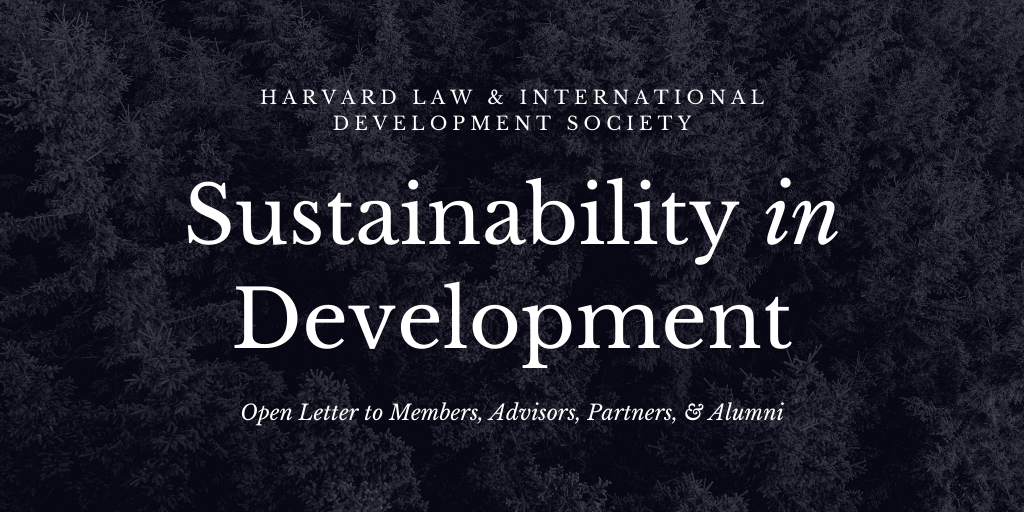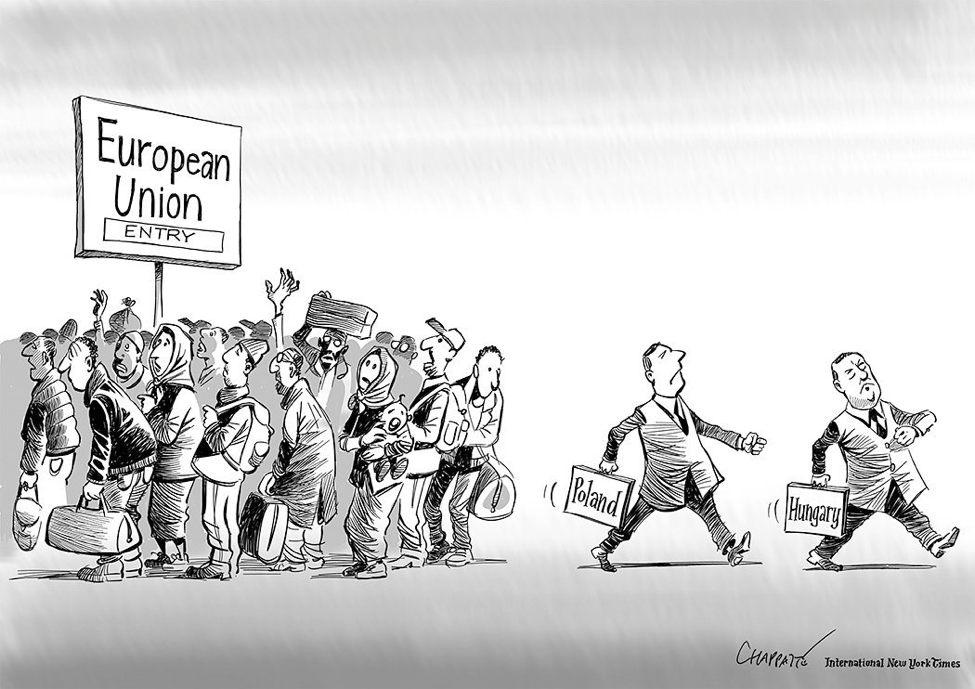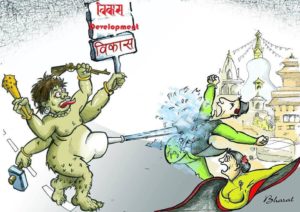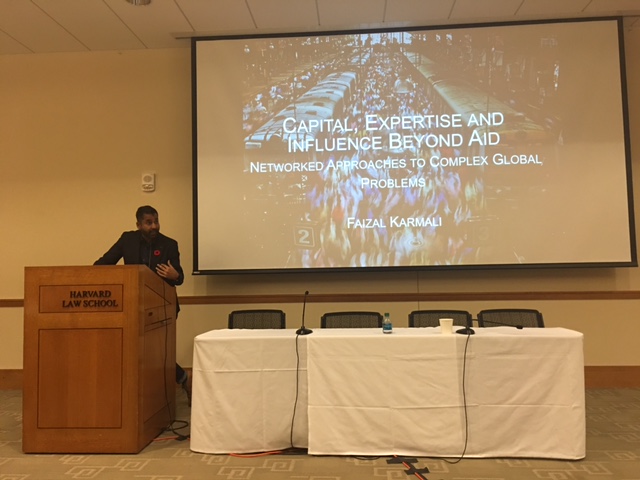By: Peter Vincze
To open the gates, or not to open the gates of their countries, that is the question. The pseudo-Hamletian query seems to resonate very well with the dilemma European policymakers face in light of the European migrant crisis.[1] Recently I have had the chance to observe the situation on the ground and how the crisis has taken a toll on the migrant population, nation states, NGOs, and other stakeholders. As co-organizer of the Harvard Humanitarian and Policy Advocacy Trip, I have travelled to Athens and the Greek island of Lesvos – the infamous locale seven kilometers away from the Anatolian shores where tens of thousands of migrants have been crossing over to the European Union since the inception of the crisis in 2015. It should not come as a surprise that the trip was arresting, yet the situation on the ground is grievous, to say the least.
As carnage exacerbated in Syria and ISIS seized new territories in the Middle East and North Africa, hundreds of thousands of migrants boarded rubber boats and other rudimentary forms of naval transportation to reach the Mediterranean shores. Greece, in the midst of its sovereign debt crisis, was inevitably caught off guard by the massive influx of migrants. Its understandable unpreparedness coupled with economic and social hardship, political instability, rise of the extreme right, and mounting security concerns created a crucible for migrants, Greeks, and all other entangled parties.
Notwithstanding the quandary, Greek authorities initially responded positively to the aforementioned Hamletian question: Both government and opposition assented that humanitarian considerations abrogate all other facets in the crisis. Reception centers and refugee camps were set up nation-wide. Multifarious bureaus at the helm of migrant matters were integrated into a single, newly-established Ministry of Migration Policy. Various legislative alterations were implemented to ameliorate migrant protection and align Greek statutes with European standards. Clemency towards squatters was exercised. Despite all propitious measures and widespread Greek benevolence, it became apparent early on that the Greek Government could not unilaterally cope with the magnitude of the humanitarian crisis.
The humanitarian disaster in Greece precipitated UNHCR to intervene and declare emergency inside the European Union, whilst the EU deployed its own humanitarian response division, the Civil Protection Mechanism, inside the continent for the first time. Government and IGO efforts were augmented by an unprecedented number of international volunteers as well as a plethora of international and local NGOs. Regrettably, goodwill and eagerness to assist has led to a situation, I would characterize, if I may, by the hoary statement: Too many cooks spoil the stew. Obscurity around stakeholders on the ground, their responsibilities and prowess, as well as dearth of coordination among them have been debilitating operational efficacy. Disconnect between local and international NGOs has further aggravated the crisis. On the one hand, international NGOs, with well-grounded experience and established funding channels, frequently struggle with bureaucratic hurdles, distrust, and detachment from the situation on the ground. Smaller NGOs, on the other hand, tend to successfully secure trust among migrants and possess a rather people-centric, hands-on modus operandi. They are nonetheless prone to funding constraints and, occasionally, that of expertise.
Gargantuan levels of humanitarian aid influx have not been vulnerary either. Pundits have denominated the situation “the most expensive humanitarian response in history” with over $800 million allocated since 2015. Accordingly, circa $14,000 per migrant could have been allotted to cover associated expenses. Mismanagement of funds has however led to an estimate by ECHO, the Directorate-General for European Civil Protection and Humanitarian Aid Operations, that up to $70 had been wasted out of every $100 spent.[2].
Amidst these challenges, the objective of our trip was to ameliorate the sojourn of migrants in Lesvos and potentially in other similar settings by ideating on sustainable solutions. In order to do so, we kicked off our trip with consultations with the Greek Ministry of Migration Policy, Asylum Services, Coast Guard, and Police as well as foreign dignitaries representing major stakeholders in the crisis to fathom constraints policy-makers encounter and perspectives stakeholders maintain. Subsequently, we journeyed to Lesvos to attain first-hand experiences and insights from denizens of three migrant settlements (Moria, Olive Grove, and Kara Tepe) that would facilitate our ideation process. Listening to a handful of gruesome anecdotes, our prognosis was pellucid: the cardinal challenge migrants face as they penetrate the European Union’s borders is the paucity of access to legal resources. Lack of access to legal resources debilitates migrants’ ability to learn and understand the asylum process; hence, their eventual attainment of asylum status in the European Union.
Disheartened by the plight in their home countries and bilked by smugglers, migrants embark on a treacherous journey in hopes of a better and safer life without the rudimentary understanding of the perils along the journey or the consequences of illegal border crossing. They cross over the Aegean Sea to enter the European Union on rubber or other rickety boats, if not swim across, just to be apprehended by the Hellenic Coast Guard or the European Border and Coast Guard Agency (Frontex), at the helm of monitoring the EU’s external borders. Placing humanitarian considerations aside, migrants’ act is deemed illegal, as they enter a sovereign entity in violation of its immigration laws, at unofficial entry points, often times without appropriate travel documents.
Migrants entering the EU illegally are subsequently apprehended and taken into custody in immigrant detention centers like the notorious Moria camp in Lesvos, where they must await registration and an asylum interview. The asylum interview that may take weeks to be conducted endeavors to shed light on the rationale why the migrant seeks asylum status and why s/he cannot return to her/his home country. Vulnerability plays a pivotal role in the asylum process, as vulnerable cases may be expedited and such consideration may impact migrants’ living conditions as they go through the process. Vulnerable characterization is deemed to be as crucial as, in certain extreme instances, one would even engage in self-mutilation to attain such status.
Following the evaluation of the asylum request that may also take weeks if not months, upon repudiation, migrants may resort to an even more bureaucratic appeals process. Whilst success is a rarity in such instances, migrants can easily be mired in the islands for years without any determination whether they can proceed to the mainland or be deported to Turkey. The oft-praised EU-Turkey Deal of 20 March 2016 is the culprit here. The accord has not merely culminated in an abrupt stop in the massive influx of migrants to Greece but has also resulted in thousands of migrants indeterminately stranded on the Greek islands, as it stymies migrants’ further movement until their asylum applications are gauged.
While awaiting the next steps, “urban” legends and canards have been metastasizing amongst the uninformed and occasionally illiterate masses. Access to accurate and up-to-date information is paramount to foster understanding and eliminate pertinent negative externalities. Obtaining and communicating such information is nonetheless exacting for a multitude of reasons. First, it is onerous, even for pundits, to construe relevant statues owing to intricacies stemming from the autonomy of Greek regulations and that of the acquis communautaire as well as the fluidity of information. The velocity by which information changes is drastic: while statues are relatively immutable, procedures and practices that often fill in legal lacunae and explicate particularities could, in extreme cases, even be altered overnight. Second, there is a scarcity of legal resources i.e. lawyers and legal aid organizations, especially the ones who are able and willing to practice law in such contexts in Greece. Third, dissemination of information faces challenges due to technological as well as linguistic and cultural barriers.
Stakeholders have not been lax in stepping up their efforts in light of the atrocious situation on the ground. The Greek Asylum Services and Ministry of Migration Policy, in collaboration with UNHCR and other IGOs, have assembled disparate websites, brochures, and other written and electronic resources for asylum-seekers. Local and international NGOs, regardless of their limited resources and constraints in operating under a foreign jurisdiction, have been coordinating with volunteer lawyers to provide pro bono legal services and translators to break down language barriers. Existing resources however are inadequate. It is evident from our sojourn that innovative approaches are needed to ascertain access to legal aid, thereby facilitating migrants’ journeys while at the same time alleviating peripatetic pressures on host countries.
Going forward, all eyes will be on the Greek Government to take action and find a much-needed remedy, as international agencies as well as local NGOs are increasingly receding from the situation. It merely begs the question whether a government still embroiled in one of the greatest economic malaises of our time will have the much-needed resolve and resources to meet expectations and fill lacunae. There is so much at stake. As one politician has sagaciously advised on the situation: “[e]very person who comes is a human being and has the right to be treated as such.” Now, whether Greece and other European countries will see migrants as human beings, especially those in dire need, will shape the future of Greece and the European Union in the years and decades to come.
[1] For the purposes of this article, the term “migrant crisis” and “migrant” will consistently be utilized. The used terminology does not intend to differentiate between individuals who are forced to vacate their homes and those who voluntarily leave their countries in hopes of better living conditions abroad. The term “migrant,” in this context, simply refers to people who have moved or are in the process of moving from one sovereign to another.
[2] The Guardian (2017). Where did the money go? How Greece fumbled the refugee crisis. [online] Available at: https://www.theguardian.com/world/2017/mar/09/how-greece-fumbled-refugee-crisis [Accessed 29 April 2018].
About the blogger: Peter Vincze is a consultant on corporate governance-related topics at the World Bank. He aims to pursue further academic training in international development law.
Follow Harvard Law and International Development Society on Facebook and Twitter (@HarvardLIDS).




